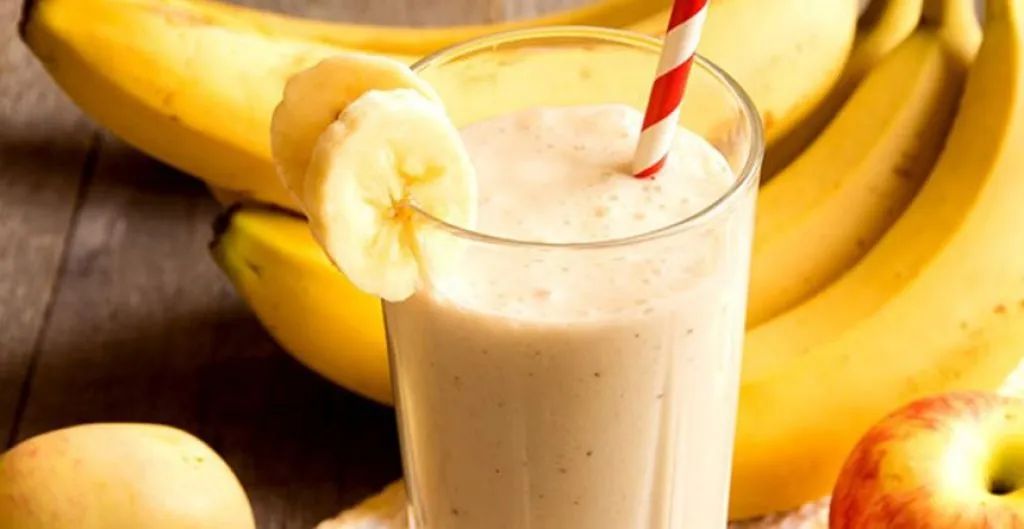Exploring the Myth: Can You Really Eat Bananas and Milk Together?
Bananas are a popular and nutritious fruit, while milk is a staple in many households. But can these two items be consumed together? If you`re curious about the potential effects of combining bananas and milk, read on.

In this article, we`ll explore the nutritional value of bananas and milk, and whether or not they can be consumed together. We`ll also examine the potential benefits and drawbacks of combining these two items. So, whether you are a banana enthusiast or simply want to learn more about this unique combination, keep reading!
The nutritional value of bananas is high.
Bananas are a nutritional powerhouse that pack a punch in terms of essential vitamins and minerals. Not only are they a delicious and convenient snack, but bananas also offer an impressive array of health benefits.

For starters, bananas are rich in potassium, which helps to regulate blood pressure and maintain proper nerve function. They also contain Vitamin C, which is essential for the growth and repair of tissues throughout the body.
But that’s not all – bananas also contain fiber, which helps to promote healthy digestion by keeping things moving smoothly through the digestive tract. And because they’re low in calories and high in nutrients, bananas make an excellent addition to any weight loss or weight management plan.
In fact, studies have shown that incorporating bananas into your diet can help to reduce the risk of heart disease, stroke, diabetes, and certain types of cancer. So if you’re looking for a simple yet effective way to boost your overall health and wellbeing – look no further than the humble banana!
The nutritional value of milk is high.
While milk is often associated with calcium, it actually contains a plethora of other essential nutrients that contribute to overall health and wellness. In fact, one cup of whole milk contains 8 grams of protein and 30% of the recommended daily intake for calcium.
But the nutritional benefits don’t stop there. Milk also contains vitamin D, which helps the body absorb calcium, as well as vitamin A for healthy vision and immune function. Additionally, milk is a good source of potassium which can help regulate blood pressure and support heart health.
It’s important to note that not all milk is created equal in terms of nutritional value. Organic or grass-fed milk has been found to contain higher levels of omega-3 fatty acids which can reduce inflammation in the body and support brain health.
Overall, incorporating milk into your diet can provide numerous benefits beyond just strong bones. Whether enjoyed on its own or used as an ingredient in recipes, this versatile beverage packs a nutrient-rich punch that should not be overlooked by those looking to optimize their nutrition.
Can bananas and milk be eaten together?
There has been much debate over whether bananas and milk can be eaten together. While some swear by the combination, others caution against it.
The science behind this controversy lies in the different digestive enzymes required for each food. Bananas contain a high amount of starch, which requires an enzyme called amylase to break down in the mouth and small intestine. Milk, on the other hand, contains a protein called casein that is digested with the help of stomach acid.
Some experts argue that consuming bananas and milk together can cause indigestion or bloating due to conflicting digestive requirements. However, others believe that as long as both foods are consumed in moderation and with proper chewing, there should not be any issues.

Ultimately, whether or not one chooses to eat bananas and milk together is a personal preference based on individual digestion patterns. It is important to listen to your body’s reactions and adjust accordingly.
In conclusion, while there may be differing opinions on this topic, it is always best to consult with a healthcare professional before making any significant changes to your diet.
Potential benefits of combining banana and milk.
Combining bananas and milk may seem like an unlikely duo, but the potential benefits of this pairing are worth exploring. Bananas are a rich source of potassium, fiber, and vitamin C, while milk provides calcium and protein. When these two ingredients are combined, they create a powerhouse of nutrients that can benefit your health in numerous ways.
One potential benefit is improved digestion. Bananas contain fiber which helps regulate bowel movements and prevent constipation. Milk contains lactase which aids in the digestion of lactose, making it easier for some people to digest dairy products. Combining the two can help promote healthy gut function.
Another benefit is increased energy levels. Bananas are a natural source of sugar that provides quick energy while milk contains protein that sustains energy levels over time. Consuming both before or after a workout can help improve performance and recovery.
Furthermore, combining bananas and milk may also have positive effects on skin health due to their high vitamin content. Vitamin C found in bananas promotes collagen production which helps keep skin firm and elastic while calcium found in milk plays an important role in maintaining healthy skin cells.

In summary, although unusual at first glance, combining bananas with milk has numerous potential benefits ranging from improved digestion to increased energy levels to better skin health- making it well worth considering next time you’re looking for a nutrient-rich snack or meal option!
Potential drawbacks of combining banana and milk.
Combining bananas and milk may seem like a harmless combination, but there are potential drawbacks that people should be aware of. When these two ingredients are mixed together, it can lead to digestive issues for some individuals.
The reason for this is because bananas contain resistant starch, which can be difficult for the body to digest. When combined with milk, the high protein content can slow down digestion even further, leading to discomfort and bloating.
Additionally, some people may have an allergic reaction to bananas or lactose intolerance that could result in more severe symptoms such as vomiting or diarrhea.
While this combination may work well for some individuals, it’s important to listen to your body and pay attention to any discomfort that arises after consuming bananas and milk together.
If you experience any negative side effects from this combination, it may be best to avoid consuming them at the same time or in large quantities. As with any dietary changes or concerns, it’s always best to consult with a healthcare professional before making significant changes.
Check out our other articles to find out even more about banana.
In conclusion, it is possible to eat bananas and milk together in moderation. However, depending on your individual dietary needs and health goals, adding banana with milk may or may not be beneficial for you. If you are interested in learning more about the potential benefits and drawbacks of combining these two ingredients, Check out our other articles to find out even more about banana!










